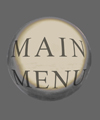In seeking an answer to THE QUESTION identified on the Mission Page, it is important to remember that although the problem is ultimately one of resources and how they are used, the solutions needed are by no means exclusively technical but are also cultural. This is because everything we do, think and say is part of a package in which responsible behavior is either encouraged or played down and ignored. Thus in creating a culture in which there is genuine understanding of the world around us, the first step is to abandon the precepts of the present and taking a long, hard look at ourselves, to ask who we are and why we are intent on destroying the environmental niche that evolution has made available to us.
All the people featured at Reloading Humanism show that there are other ways of doing things and that we can escape the destructive corset of consumer culture and the centuries-old habit of taking more than we give. This however assumes that we see ourselves in a way that accords us these abilities. Abandoning the staged and superficial cynicism of the present, we must return to a more Renaissance orientated view of our place in the world and see ourselves as beings that, depending on one’s beliefs, either God or nature has singled out and endowed with unique abilities and along with them, a unique set of responsibilities that it is our task to address.
Starting with the Big Bang and chaos theory, Alexander Curtis is concerned with „the way of things“ and our place in an exploding universe. Philipp Blom meanwhile is concerned with historical contexts and the more recent reasons as to why things are the way they are. Where Alain de Botton is concerned with human happiness, other Reloading Humanists deal more obviously with the problem of how we can get ourselves out of the rut into which we have got so irrecoverably stuck. Yet others still, are simply concerned with making things that inspire, for once inspired, who knows what we cannot do? Where the Alexander Curtis page serves both as an introduction to himself and to the other people featured, the Ulrike Herrmann page deals with economics. The Maja Göpel page is in many senses a culmination which draws the various approaches together. Confirming the position arrived at by Herrmann in 2022, is Kohei Saito’s book of 2023, which unexpected became a bestseller in Japan and from there moved on to become a bestseller in Germany. Although compact, Saito’s book provides nuts and bolts solutions that inspire, despite the enormity of the problems we face and the immensity of tasks that must be undertaken. For a summary of Saito’s position see the second half of the Ulrike Herrmann article.
All texts are by Alexander Curtis and with the exception of Martin Gut, Bernhard Kaar and Dalia Blauensteiner, the people here featured are covered in the same way as a review of a book given in a magazine. While accuracy in portraying the work of the people concerned is striven for, the understanding of the books reviewed is ultimately the reviewer’s impression and may not be entirely correct in representing a writer’s actual position.

